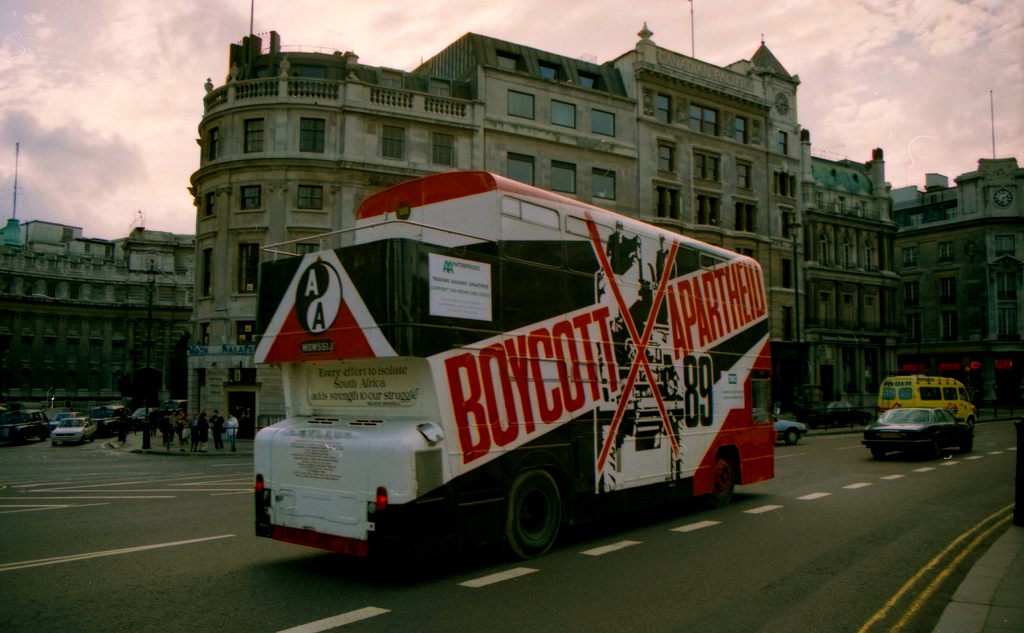Opinion Turns On South Africa

A bus in London showing how normalized the boycott had become by 1989. (Creative Commons photo. Attribution to author and info can be found here)
It was clear from the very early days of apartheid that there were problems on the horizon for the country, but as time went on the number of countries that spoke out about the practices of South Africa grew. Opinion in Britain would turn so sharply against the regime that South Africa chose to withdraw from the British Commonwealth in 1961. Even the U.N. tried to pressure change in the country by passing resolutions to condemn them after Sharpeville (1962) and starting a trade embargo against the country (1963). There was an attempt to kick them out of the UN but the countries who still traded with them, like the US, voted against this decision. These changes caused South Africa to try to save face with their “outward-looking policy,” where they would help other African countries with aid.
By the early 1980’s international pressure against South Africa was nearly impossible to deal with. The country was seen as a sort of outlaw country to the rest of the world, and the number of countries that were adding sanctions against them were growing exponentially. Northern European countries often took the added step of sending money directly to the ANC to try to help with independence. This was an extremely dramatic shift for an organization
that had been called terrorists in previous decades. Within the country itself, movements started among the white population to end apartheid. Somewhere between 15-20% of the population had turned on the concept of apartheid, and groups like the Black Sash were actively working to end it.
One of the most visible protests against the country was in the sporting world, where tons of teams from other countries flat out refused to play South Africa while they were acting like this. Even the Olympic committee got involved by trying to ban them from attending the Olympics. So South Africa brought in the wildly popular New Zealand rugby team “the All-Blacks” (referencing the team jersey colors, not their race), despite the fact that the majority of the team were native New Zealanders (Maori). They got around their law system to do this by calling them “honorary whites,” which is an absurd term often used by racists in history.
Despite all of this pressure, there were a few countries who still supported South Africa through all of this. The US and Great Britain specifically kept working with the country until 1986, mainly because they were more worried about the possible spread of communism than a racist regime. These countries would continue to claim that the ANC was a terrorist organization, with potential ties to communism. British Prime Minister Margaret Thatcher claimed anyone who supported this terrorist group or believed in their ideas was “living in cloud cuckoo land.” It is interesting that very few people at the time realized that the support for these racist regimes were leaving the ANC no choice but to try to get support elsewhere.
